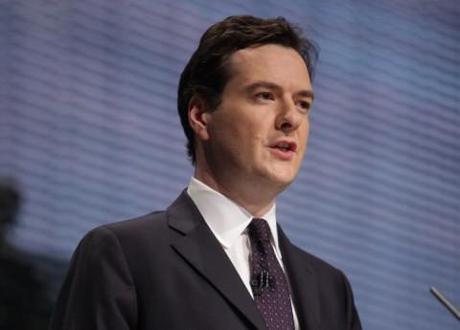
Chancellor George Osborne: Under pressure? Photo credit: Paul Toeman
Britain risks losing its highly prized triple-A credit rating, warned US ratings agency Moody’s, in what is widely considered to be a blow for UK Chancellor George Osborne. France and Austria are also in the danger zone, reported Reuters, while Moody’s downgraded Italy, Spain, Slovakia, Portugal, Slovenia and Malta. Germany’s AAA rating, which allows the country to borrow at the lowest interest rates, is safe for now.
The Moody’s move reflects concerns over Europe’s ability to address the debt crisis, said Reuters, alongside fears that “the region’s weak economy could undermine austerity drives by governments to fix their finances”.
The news comes ahead of Osborne’s third budget, which is expected to continue the chancellor’s theme of reducing Britain’s deficit as the top economic priority. However, The Guardian reported that Moody’s is concerned over the UK’s “weak” growth prospects, leading to calls for the government to rethink economic policy to focus on stimulation rather than debt reduction.
Osborne has insisted the government will stick to the plan, describing the Moody’s warning as “a reality check for anyone who thinks Britain can duck confronting its debts”, said The Guardian. But is it time for the chancellor to change economic course?
Wrong economic balance, Labour vindicated? “The government’s problem is that it has got the balance of growth and austerity wrong and has now been rumbled,” wrote Larry Elliott in The Guardian. According to Elliott, an actual cut to Britain’s credit rating would have little effect on the economy, as the experiences of the US and France have demonstrated; but, “the blow to the chancellor and the Government is to its moral authority”. Nobody can seriously suggest that Britain can “duck the debt issue”, said Elliott, but the trouble is “the economy has slowed to a virtual standstill, making it more difficult to hit the government’s target for curbing debt” – which is what shadow Chancellor Ed Balls has been saying for months.
“I don’t see this false choice between growth and dealing with your debts. If you don’t deal with your debts, you won’t have growth,” said UK Chancellor George Osborne in response to the prospect of a rating downgrade, reported The Guardian.
Moody’s warning doesn’t vindicate Labour – but does damage coalition. “It is certainly true that there is no hint, in Moody’s statement, that it would like to see the UK ease up on austerity. Quite the opposite,” said Stephanie Flanders at the BBC. The Moody’s analysts see the chancellor’s austerity measures as “necessary”, wrote Flanders, while acknowledging that “Britain could go through all this austerity and still lose its Triple A rating, due to a slow or stagnant economy”. The problem for Osborne, argued Flanders, is that “preserving Britain’s top credit rating has long been a central plank of [his] case for cutting the deficit faster than Labour” – and no doubt Labour will seize on this.
Would have been worse under Labour. Balls is misguided if he believes a “shallower” debt reduction is the way forward, wrote Peter Hoskin on The Spectator Coffee House blog: “Moody’s are clear that we have been placed on a negative outlook because of doubts that our fiscal consolidation will continue strongly enough.” According to Hoskin, Labour’s economic plan (based on former Chancellor Alistair Darling’s last budget while the party was in government) would have meant “even more borrowing — and even more debt”, and thus guaranteed Britain losing its triple-A rating.
“Unless you’ve got growth, if your plan is unbalanced, it becomes self-defeating and today is the first evidence that even the ratings agencies are waking up to the fact George Osborne’s plan’s not working,” said shadow Chancellor Ed Balls, reported The Telegraph.
Growth stimulation is not simple. To listen to the chancellor’s critics, you’d think “that Mr Osborne resembled an idle signalman, whose box has a lever marked ‘growth’, but who refuses to pull it”, wrote Bruce Anderson in The Telegraph. But the reality is that Osborne is under international and political restraints – not least the current lack of confidence in the British economy, despite the chancellor’s best efforts, said Anderson. One of the biggest problems is that successive governments have created an “anti-employment culture”, Anderson argued, due to globalisation, dropping education standards and over-emphasis on workers’ rights.

